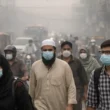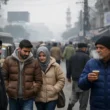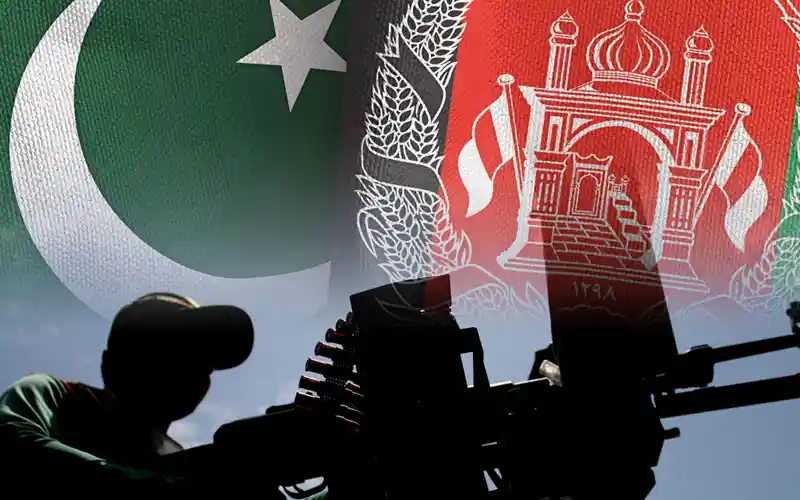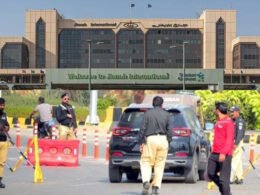Heavy clashes have erupted between Pakistani and Afghan forces at multiple points along their border, with both sides claiming to have captured and destroyed border posts in one of the most intense confrontations in recent years.
According to Zabihullah Mujahid, the spokesperson for the Afghan administration, at least 58 Pakistani soldiers were killed in “retaliatory” attacks on Saturday night, coming two days after explosions were reported in Kabul and the southeastern Paktika province.
In response, Pakistan’s military confirmed that 23 of its soldiers had been martyred during the violence and claimed to have neutralized around 200 Afghan fighters and affiliated militants.
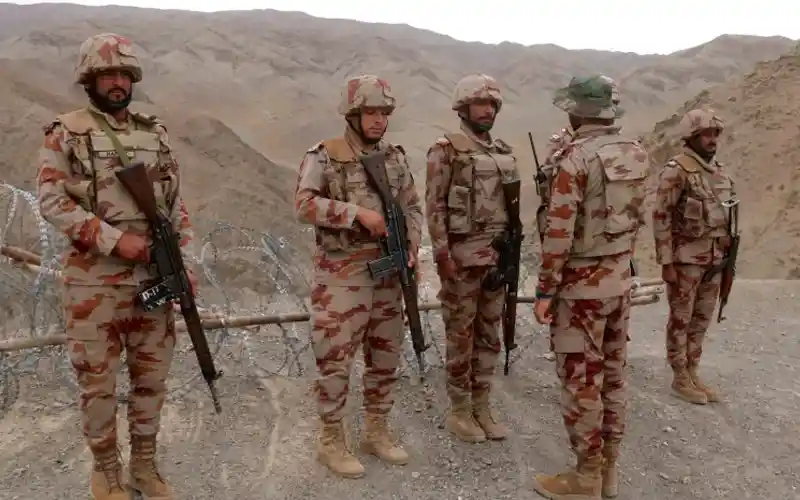
Earlier, Pakistan’s Interior Minister described the Afghan actions as “unprovoked firing.”
The Taliban government has accused Pakistan of being behind the recent bombings, though Pakistan has neither confirmed nor denied these allegations, according to Al Jazeera report.
Since the Taliban’s return to power in 2021, tensions have risen, especially due to an increase in attacks inside Pakistan.
As for the current situation, questions remain about what sparked the recent escalation, and whether this clash marks a new phase in the ongoing tensions between the two countries.
The potential for further escalation remains a serious concern.
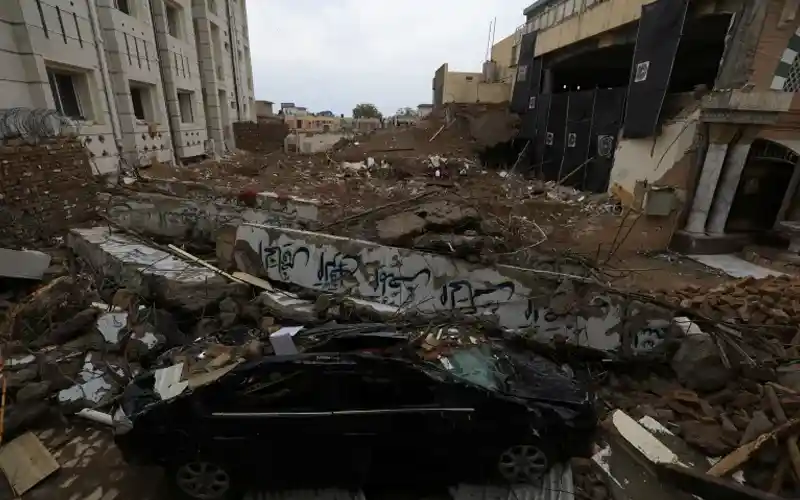
Latest Developments:
The Taliban launched an attack on Pakistan’s border regions at around 10 pm. local time (17:00 GMT) on Saturday, leading to intense exchanges of fire at multiple locations.
Pakistani officials and state-run media confirmed that the clashes occurred in several areas, including Angoor Adda, Bajaur, Kurram, Dir, and Chitral in Khyber Pakhtunkhwa province, as well as Bahram Chah in Balochistan.
Zabihullah Mujahid, a spokesman for the Taliban, claimed Afghan forces killed 58 Pakistani soldiers, captured 25 Pakistani army posts, and wounded 30 others during the attacks.
He further asserted that the situation along Afghanistan’s official and de facto borders was under control and that illegal activities had been largely prevented.
On Sunday, Afghanistan’s TOLOnews reported that the Afghan Ministry of Defence had deployed tanks and heavy artillery to various regions in Kunar province, which lies along the 2,640 km (1,640-mile) Durand Line, the contested colonial-era boundary.
READ: Pakistan captures multiple check posts, kills 200 Afghan militants: ISPR
In response, Pakistan’s military condemned what it called a “cowardly action,” accusing the Taliban of attempting to destabilize the border areas to facilitate terrorism.
The Inter-Services Public Relations (ISPR), the media wing of Pakistan’s military, stated that Pakistani forces successfully repelled the assault, exercising their right to self-defense.
The ISPR also emphasized that the clash vindicated Pakistan’s long-standing stance that the Taliban government is actively enabling terrorist activities.
During the encounters, at least 29 Pakistani soldiers were injured, and the military reported substantial damage to Taliban infrastructure.
The Pakistani military claimed that multiple Taliban positions were destroyed and that 21 hostile sites on the Afghan side of the border were briefly captured, rendering several terrorist training camps inoperative.
While the intensity of the clashes has decreased, residents in Kurram reported intermittent gunfire continuing into the following day.
What triggered the clashes?
The recent clashes between Pakistani and Afghan forces appear to have been sparked by escalating tensions over a series of events.
On Thursday, Kabul was rocked by two explosions, with another blast occurring in a civilian market in Paktika, a province near the border.
The Taliban’s Defence Ministry quickly accused Pakistan of violating Afghanistan’s “sovereign territory.” Although Pakistan did not explicitly deny the explosions, it urged the Taliban to take action against the Tehrik-e Taliban Pakistan (TTP), a militant group it claims is operating from Afghan soil.
According to Reuters, a Pakistani security official claimed that the airstrikes were conducted with the aim of targeting the leader of the TTP, Noor Wali Mehsud, who was reportedly traveling in a vehicle. However, the survival of Mehsud could not be independently verified by international media.
The deteriorating relations between Pakistan and the Taliban have been largely driven by Islamabad’s accusations that the Taliban is harboring TTP militants, who have been responsible for a series of deadly attacks inside Pakistan.
In the first three quarters of 2025 alone, 2,414 people have been killed in militant attacks, according to the Centre for Research and Security Studies (CRSS), a think tank based in Islamabad.
With this surge in fatalities, the current year could become one of the deadliest for Pakistan in recent history, surpassing the 2,546 deaths recorded in 2024.
The violence has intensified since the removal of former Prime Minister Imran Khan in April 2022.
During his tenure, Khan’s government engaged with the Taliban to broker a ceasefire with the TTP, though this agreement ultimately fell apart.
Despite the collapse of the ceasefire, the frequency of attacks had been lower during Khan’s time in office. However, since his ouster, both the number of TTP attacks and Pakistan’s airstrikes inside Afghanistan have sharply increased, further straining relations.
Security analysts point to the rising attacks by the TTP, which includes suicide bombings and assaults on Pakistani soldiers, as the primary trigger for the deadly border clashes.
Mehmood Jan Babar, a Peshawar-based political and security analyst, explained that the surge in TTP violence was a message to the Taliban: if they fail to control militant elements on their territory, Pakistan will continue to carry out strikes inside Afghanistan.
Babar added that the Taliban’s reluctance to confront the TTP stems from internal divisions within the Afghan Taliban, some of whom are believed to have links with the TTP.
The fear is that taking action against the TTP could trigger a revolt within the Taliban ranks, with militants possibly defecting to groups like the Islamic State’s Khorasan Province (ISKP).
In addition to these security issues, relations have also soured over Pakistan’s decision to deport tens of thousands of Afghan refugees, further inflaming tensions.
Pakistan has hosted nearly 3 million Afghan refugees over the past several decades, but the forced repatriation has added another layer of complexity to an already fragile relationship.
International reaction to Pakistan-Afghanistan clash
The recent border clashes between Pakistan and Afghanistan have drawn concern from regional and international actors, as tensions between the two neighbors continue to escalate amidst shifting security dynamics in South Asia.
Iran was among the first to urge caution. Foreign Minister Abbas Araghchi appealed to both Islamabad and Kabul to show restraint.
Speaking during a televised interview, Araghchi emphasized that maintaining stability between the two countries is essential for broader regional peace.
Qatar also issued a statement through its Ministry of Foreign Affairs, encouraging both sides to prioritize diplomacy and dialogue over conflict.
The ministry called for efforts to de-escalate the situation and work toward solutions that promote peace and stability in the region.
Saudi Arabia echoed similar sentiments, calling on both Pakistan and Afghanistan to avoid further escalation. The Saudi Ministry of Foreign Affairs urged a return to dialogue and emphasized the need for wisdom and restraint.
India, which is currently hosting Afghan Foreign Minister Amir Khan Muttaqi during his first official visit to the country, has yet to issue a formal statement on the border violence.
Islamabad, however, has closely watched New Delhi’s engagement with the Taliban and has expressed skepticism over India’s growing diplomatic ties with the Afghan government.
According to Ibraheem Bahiss, a senior analyst with Crisis Group based in Kabul, Muttaqi’s high-profile visit to India may have influenced Pakistan’s decision to take a stronger military stance.
Bahiss suggested that the timing of the clashes coinciding with the Afghan Foreign Minister’s warm reception in New Delhi may have played a role in Islamabad’s response.
Could the clashes escalate further?
Despite the severity of recent clashes, security analysts and former diplomats suggest that both Pakistan and Afghanistan are unlikely to let the situation spiral into a full-scale conflict.
Asif Durrani, Pakistan’s former ambassador and special representative to Afghanistan, said the chances of the current hostilities escalating into a broader confrontation are “minimal.”
He pointed out that Afghanistan lacks the conventional military strength to challenge Pakistan in open warfare. “Guerrilla tactics are not the same as conventional warfare,” he explained, emphasizing that Pakistan maintains a significant edge in traditional military capabilities.
Ibraheem Bahiss, a Kabul-based analyst with Crisis Group, echoed similar views. He noted that both Islamabad and Kabul are already preoccupied with internal challenges and would prefer to deescalate rather than escalate.
“Pakistan is already facing frequent militant attacks, particularly targeting its security forces. Opening another front with the Afghan Taliban would only compound the security pressure,” Bahiss said.
He added that the Taliban’s military response appeared aimed more at reassuring their domestic base rather than signaling a desire for prolonged conflict. “It was about showing control and the ability to respond to any perceived violations of their territory,” he said.
Babar, the Peshawar-based security analyst, says both sides need to engage through diplomacy. “It is the only way they can somehow find a way to resolve their differences.
Pakistan’s deputy prime minister Ishaq Dar, who is also the foreign minister, met his Afghan counterpart earlier this year, and they have both promised not to fight,” he told Al Jazeera.
“Both countries have a similar set of friends, particularly China and other Muslim nations. Saudi Arabia, in fact, has already issued a statement urging both sides to restrain and disengage from battle. China and Russia, too, will not want this border to heat up and will want both to get back on the negotiation table, so I don’t think there will be any further escalation,” he said.
But Durrani, the former Pakistan envoy, says that the TTP remains the central issue in the countries’ fraught relations. “The Afghan government refuses to acknowledge their [the TTP’s] existence on their soil, and as long as that irritant remains present, the situation will remain tense,” he added.

